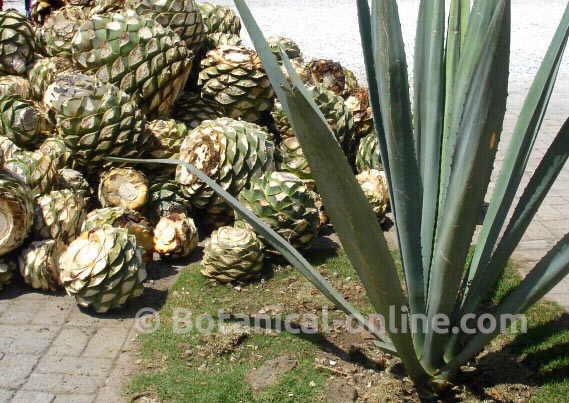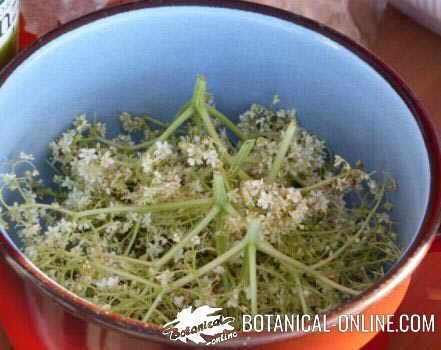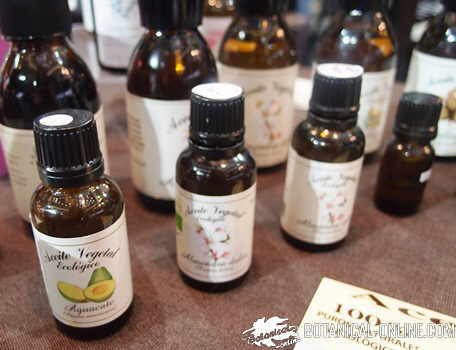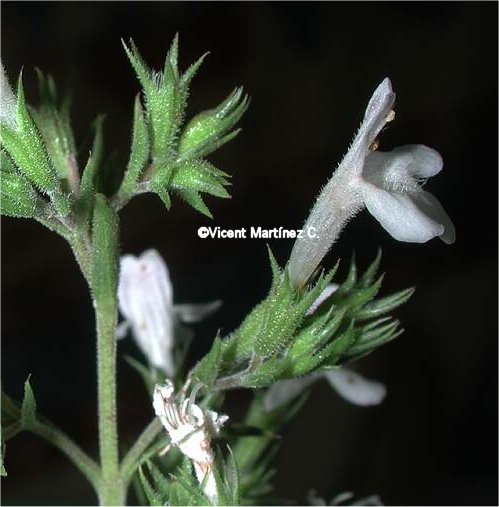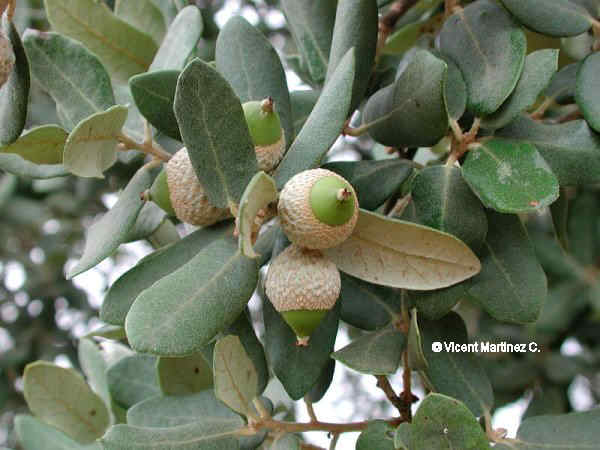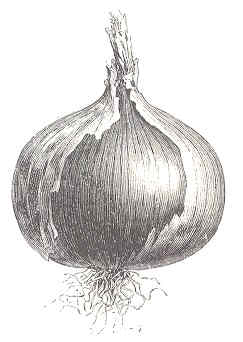Contents
- 1 Nutritional and medicinal benefits of Fucus vesiculosus
- 1.1 CHARACTERISTICS OF FUCUS
- 1.2 Where to find fucus?
- 1.3 Description of Fucus vesiculosus
- 1.4 Components of Fucus vesiculosus
- 1.5 MEDICINAL PROPERTIES OF FUCUS
- 1.6 Traditional use of fucus
- 1.7 INTERNAL USE PREPARATIONS WITH FUCUS VESICULOSUS
- 1.8 Fucus, a remedy for hypothyroidism
- 1.9 Do not collect wild fucus
- 1.10 Fucus to speed your metabolism
- 1.11 Diseases of metabolism that can be treated with fucus
- 1.12 Fucus, very rich in mucilages
- 1.13 Fucus has a great power of absorption
- 1.14 Fucus as an aid to lose weight
- 1.15 What do studies say about fucus as a metabolism booster?
- 1.16 Fucus used externally for skin diseases
- 1.17 Contraindications of Fucus vesiculosus
- 1.18 Toxicity and interactions
- 1.19 Fucus vesiculous side-effects
Nutritional and medicinal benefits of Fucus vesiculosus
CHARACTERISTICS OF FUCUS
 Drawing of fucus
Drawing of fucusCommon English name: Fucus, sea oak, bladderwrack, vesicular seaweed
Scientific name: Fucus vesiculosus L., of Greek “fucus= algae” and “vesiculosus” by the air charged bladders that keep it afloat. Family. Fucaceae
Where to find fucus?
Habitat: It lives on rocks, cliffs, beaches of the Atlantic and Mediterranean colder waters.
It can live several days out of water by secreting a mucus that protects it from drying and sun.
To withstand the cold temperatures of the waters it inhabits, it contains antifreeze properties that allow it to hold while the water around it freezes. In some very cold areas, such as the North Sea, it is one of the few habitats where communities can develop large marine crustaceans and mollusks.
Due to overexploitation it has been subjected, as well as sea nitrification which has reduced the entry of light in water, their communities have been decreasing in recent times, especially those living in deeper water.
Description of Fucus vesiculosus
Seaweed up to 100 cm in length.
Talo-shaped flat plates constantly forking.
Floating vesicles grouped in pairs along the midrib.
Dark brown or olive green with bright gold extremes when in the water, almost black a little while after picking it up.
Reproductive receptacles located at the ends of the blades.
Components of Fucus vesiculosus
- Acids: alginic, ascorbic acid, arachidonic, Fucino, lauric, myristic, oleic and stearic acid. (Plant)
- Fucoidan (Plant)
- laminarin (Plant)
- Lutein
- Chlorophyll
- Mucilage (Plant)
- Protein (Plant)
- Mannitol (Plant)
- Lutein (Plant)
- Sodium
- Vitamins: niacin, riboflavin, thiamin, vitamin C.
- Minerals: Aluminum, arsenic, bromine, calcium, zinc, chromium, cobalt, phosphorus, iron, mercury, magnesium, lead, potassium, selenium, silicon, iodine. (Plant)
MEDICINAL PROPERTIES OF FUCUS
Traditional use of fucus
This algae has traditionally been used in Eastern countries, especially in China, mainly to treat hair loss and to increase desire. It has also been used as a source of calcium and iodine in places where these minerals are deficient in the human diet.
Fucus along with other algae, such as kelp, is one of the main components of the kelp, a plant product that is made from different brown algae.
This product has been publicized in the Western world as a remedy for many diseases, which has led to a proliferation of sales and at the same time, a fierce debate between its defenders and detractors.
INTERNAL USE PREPARATIONS WITH FUCUS VESICULOSUS
Fucus, a remedy for hypothyroidism
Hypothyroidism: Bladderwrack is a species rich in iodine, with content that can reach up to 0.1%. Among other functions, iodine is part of the thyroid gland need to make this work well.
The malfunctioning of the thyroid is responsible for the appearance of hypothyroidism and goiter. Fucus was indeed the main source in the discovery of iodine in the early nineteenth century and has since been used as a stimulant of the thyroid.
Besides iodine, Bladderwrack contains vitamin C and vitamin B both are very useful to regulate thyroid function, and tyrosine, a nonessential amino acid involved in the formation of many hormones.
Is Fucus vesiculosus really good for hypothyroidism?
The application of this plant in the treatment of this disease is an ongoing controversy. While many specialists believe that natural medicines derived from this algae are suitable for natural thyroid treatment, conventional medicine considers the effects of this plant in this disease are very small and, in contrast, the dangers and contraindications of it are so high that not justify its use.
In any case it is recommended that people who want to try this remedy for the treatment of hyperthyroidism do so only with the authorization and prescription. (Take this seaweed in preparations sold in pharmacies and specialty stores. The usual dose is about 650 mg daily of powdered extract of this plant) should be used only standardized products that come from a reliable source.
Do not collect wild fucus
because the iodine content in a fucus sample can be very variable and may inadvertently exceed the recommended dose. Moreover, when the algae are collected along the coast, there is always the possibility of confusing them with other toxic plants can be quite similar or contaminated with toxic heavy minerals such as mercury, lead, cadmium, etc.
Fucus to speed your metabolism
Fucus is considered as an enhancer of basal metabolism. The basal metabolic rate is the amount of calories the body uses in a rest position.
People with a high metabolic rate spend more calories, while people who have a lower metabolic rate spend less, therefore, they tend to store more fat than the first. Stimulants such as caffeine, increase the basal metabolism, whereas sedatives diminish it.
Fucus increases the basal metabolism by stimulation of the thyroid. so we can say that the body “runs faster”.
Diseases of metabolism that can be treated with fucus
This property has been exploited for the treatment of the following metabolic abnormalities:
- Obesity: Traditionally this plant has been used as a supplement for weight loss treatments. Do not forget that, by stimulating the thyroid, the metabolism increases so that the person concerned of overweight “burn more fat” and get a weight reduction.
- Cellulitis: For this same reason, this plant is recommended for the treatment of cellulitis.
- Liquid retention: Many current diuretic preparations contain this plant together with other diuretic plants. It is considered that the increase in metabolism along with its potassium content helps eliminate fluid retention.
- Gout and arthritis: the elimination of fluids help to improve the joints of gout or arthritis patients.
Fucus, very rich in mucilages
Its high content of mucilage, a type of soluble fiber facilitates the expulsion of faeces and keeps the feeling of fullness, while avoiding the occurrence of constipation.
Fucus has a great power of absorption
Bladderwrack is rich in alginic acid and sodium alginate. These components have the ability to absorb large amounts of liquid, turning into a soft paste or gel and mucosa.
The properties of this paste are both industrially take advantage either of fucus or from other seaweeds in the food industry as thickeners in the manufacture of ice cream, cakes or other foods.
Fucus medicinally capacity to increase in size is used to treat certain conditions such as:
- Heartburn: Fucus medicinal preparations, once ingested, are capable of absorbing excess stomach acid in the stomach so it is sometimes used to treat heartburn or gastric reflux, a problem that is very common in patients with hiatus hernia.
- Cholesterol: This paste is also able to “wrap” cholesterol in the digestive tract by decreasing its absorption into the bloodstream and expelled through the feces.
Fucus as an aid to lose weight
The capacity of the preparations of this plant to increase its size make it able “to fill” the stomach, eliminating the sensation of hunger and compulsive desire to ingest food, reason why some dieticians recommend it for treatments against the obesity or bulimia.
What do studies say about fucus as a metabolism booster?
- Animal studies have shown a considerable loss of fat when they use extracts of this plant.
- In the case of its application to people, it seems that weight loss occurs only when the specific person was affected by obesity caused by the malfunction of the thyroid, while in other cases, weight loss is minor.
- Many nutritionists believe that there are much safer preparations for constipation, cellulitis, gout, arthritis, heartburn or cholesterol and can take other diets to lose weight without resorting to fucus.
- In any case, it is recommended that, before starting treatment with this plant to increase metabolism, consult your doctor.
Fucus used externally for skin diseases
Used externally, iodine and selenium provide fungicidal properties. Iodine also provides antibacterial properties because of vitamin C, lauric acid, polyphenols and chlorophyll. Mucilage gives it astringent and vulnerary properties.
This determines the fucus is useful in treating skin diseases like eczema, wounds or sores that have difficulty healing. (Clean the affected area with the decoction of two tablespoons of dried plant per cup water)
Contraindications of Fucus vesiculosus
- Do not take preparations from this plant in combination with other medicines for hypothyroidism or with other drugs that contain iodine. The combination of both could trigger hyperthyroidism.
- Not to be administered with other hormonal drugs.
- Do not use this plant to people who are taking blood thinning medications. Given the power of fucus as a blood fluidifying remedy, its use in combination with other plants that have similar properties could lead to body bleeding.
- Its use in combination with other diabetes medicines may decrease too much sugar levels in the blood.
- Not to be administered in pregnant or nursing women.
Toxicity and interactions
The contents of a number of toxic chemicals makes many consider this herb as too dangerous for use as a medicinal plant. Among the harmful substances that can cause chemical poisoning are:
- Cadmium
- Lead
- Mercury
- Arsenic
Fucus vesiculous side-effects
- The prolonged intake of preparations containing fucus may decrease the absorption of iron.
- Excessive iodine intake can result in some cases in manifestations of acne.
- In some people it can produce diarrhea or vomits.
![]() More information on natural products.
More information on natural products.

